News
Fonterra doubles lactose recovery
23 Jun 2016The upgrade underway at Fonterra’s Edgecumbe site will allow Fonterra to capture lactose that was previously unable to be extracted from the site’s waste stream by creatively applying existing filtration technology.

The upgrade underway at Fonterra’s Edgecumbe site will allow Fonterra to capture lactose that was previously unable to be extracted from the site’s waste stream by creatively applying existing filtration technology, the company has announced.
While the project will cost NZ$8 million, it will double the amount of lactose the site is able to recover in a day, Fonterra said, reducing its reliance on imported lactose from overseas suppliers and delivering significant and ongoing cost savings. Fonterra Director New Zealand Manufacturing, Mark Leslie says the upgrade will play a vital role in the Co-operative’s ability to provide high quality milk powder to the world. “Lactose is used mainly in standardising milk powder, and the additional volumes of lactose we’re now able to capture will be essential in supplying the new dryer opening soon in Lichfield – one of our most strategically important builds,” said Leslie. “We are continually looking for ways to get the most out of our milk and this is another good example. We have found a creative way to use existing technology that will bring great results, save us cash and deliver real value for our farmers.”Fonterra believes that not only will the upgrade generate savings for the co-operative, by removing even more solids from the site’s waste water, it will also reduce Fonterra Edgecumbe’s environmental footprint.“Important to Fonterra is our commitment to creating a more sustainable dairy industry. As with any project we undertake, reducing our emissions and our environmental impacts is one of the first considerations,” said Leslie. “This project, and several others planned for the Edgecumbe site in the coming months demonstrate that ongoing commitment.”Related news
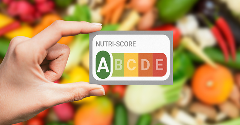
Danone removes NutriScore from products
20 Sep 2024
Following an algorithm update that gives some of its sweetened drinks a worse score, Danone has removed the front-of-pack label, NutriScore, from all of its products – putting profit before public health, say campaigners.
Read more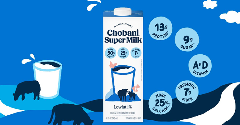
Chobani develops shelf-stable, prebiotic-enriched Super Milk
12 Sep 2024
Chobani has launched a prebiotic-enriched, shelf-stable, high-protein dairy milk to support people in disaster zones who need a nutritious drink that does not require refrigeration.
Read more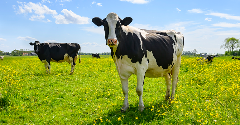
Tesco trials methane mitigation supplement for dairy cattle
5 Sep 2024
Tesco is trialing a methane-reducing feed supplement for one of its key UK dairy farms, sustainable UK milk producer Grosvenor Farms.
Read more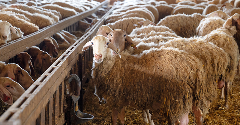
Sheep and goat plague: A new threat to Greece’s feta production
27 Aug 2024
A recent goat and sheep plague outbreak threatens feta production in Greece. The flagship product accounts for roughly 10% of the country’s food exports, but Greek authorities say there is no cause for concern.
Read more
Nestlé develops a new fat reduction method for dairy ingredients
26 Aug 2024
A Brazil-based Nestlé research and development team has developed a way to reduce the fat in milk powder by as much as 60%, without impacting the key characteristics that consumers enjoy.
Read more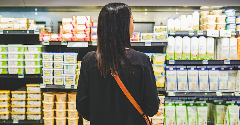
Dutch court rules against plant-based butter brand ‘Roombeter’: Only dairy products allowed to use the word ‘cream’
26 Jul 2024
A Dutch court has ruled against Upfield’s plant-based butter, Roombeter, stating that its use of the word ‘room’ (cream) in the product name violates European regulations that protect dairy-related terms allowed for dairy products only.
Read more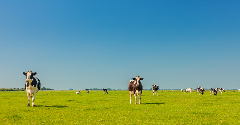
How will Denmark’s 2030 carbon tax impact farming?
12 Jul 2024
Denmark has announced plans to implement Europe’s first carbon tax on agriculture from 2030, targetting the farming sector’s CO2 emissions. How will it be implemented and how have farmers reacted?
Read more
Sweden updates front-of-pack Keyhole labelling rules
11 Jul 2024
The Swedish Food Agency has announced updates to the voluntary Keyhole logo, used in four Nordic countries, following recommendations to improve nutrition labelling.
Read more
Consumers dislike faba beans’ sensory profile
3 Jun 2024
Consumers display low acceptance of faba beans, with sensory properties such as bitterness a core concern, a study suggests. However, for product varieties such as cocoa-free chocolate, this attribute could prove to be a benefit.
Read more
Food scientists uncover new way to preserve nutrient and flavour quality
29 May 2024
Researchers have developed a method that guarantees food safety for low-moisture products, such as dried milk, while maximising quality by retaining vitamins, minerals, and flavours, they say.
Read more